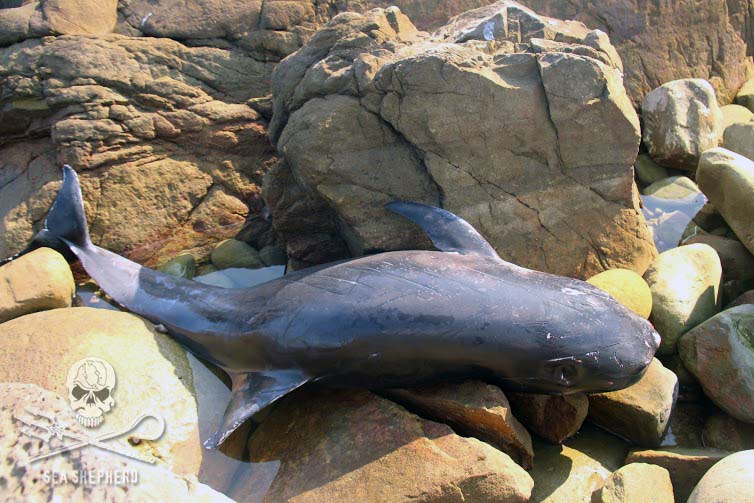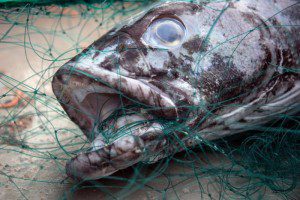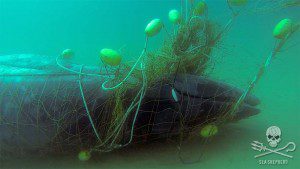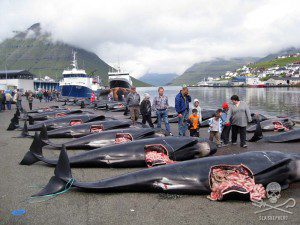By Tracy Brighten
Marine conservationists claim that dolphin hunters may be dumping slaughtered calves and juveniles at sea to avoid quota counts
Sea Shepherd Conservation Society’s Cove Guardians are on the ground in Taiji, documenting the dolphin hunt season from September through March. Operation Henkaku is reporting the drive hunts to the world through live stream, press releases and social media.
This season, Cove Guardians have documented small boats covered by tarpaulin leaving Taiji cove after the slaughter of Risso’s dolphin pods. Continue reading




